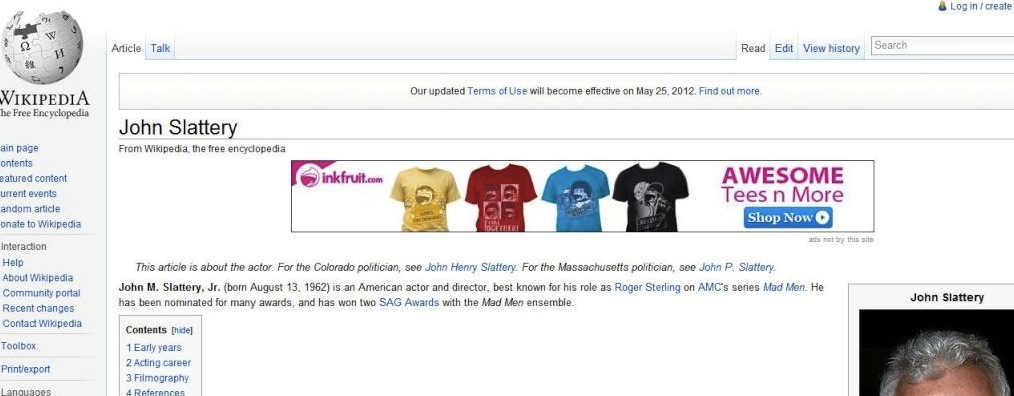We never run ads on Wikipedia. Wikipedia is funded by more than a million donors, who give an average donation of less than 30 dollars. We run fundraising appeals, usually at the end of the year. If you’re seeing advertisements for a for-profit industry (see screenshot below for an example) or anything but our fundraiser, then your web browser has likely been infected with malware.

One example that we have seen installs itself as a browser extension. The extension is called “I want this” and installs itself in Google Chrome. To remove it:
- Open the options menu via the “pipe-wrench” icon on the top right, and choose Settings.
- Open the Extensions panel and there is the list of extensions installed.
- Remove an Extension by clicking the Remove button next to an item.
There is likely other similar malware that injects ads into Chrome, Firefox, Internet Explorer and other popular browsers. If you see examples that you can document, please point them out in the comments.
Ads injected in this manner may be confined to some sites, even just to Wikipedia, or they may show up on all sites you visit. Browsing through a secure (HTTPS) connection (which you can automate using the HTTPS everywhere extension) may cause the ads to disappear, but will not fix the underlying problem.
Disabling browser add-ins is a good starting point to determine the source of these types of ads. This does not necessarily fix the source of the problem either, as malware may make deep changes to your operating system. If you’re comfortable attempting a malware scan and removal yourself, there are various spyware/malware removal tools. Popular and well-reviewed solutions include Ad-Aware and Malwarebytes. But be aware that these types of tools may also bundle software, or leave your computer in an unusable state.
If in doubt, have your computer evaluated for malware by a competent and qualified computer repair center.
There is one other reason you might be seeing advertisements: Your Internet provider may be injecting them into web pages. This is most likely the case with Internet cafes or “free” wireless connections. This New York Times blog post by Brian Chen gives an example.
But rest assured: you won’t be seeing legitimate advertisements on Wikipedia.
We’re here to distribute the sum of human knowledge to everyone on the planet — ad-free, forever.
Philippe Beaudette, Director of Community Advocacy
Erik Moeller, Vice President of Engineering and Product Development
